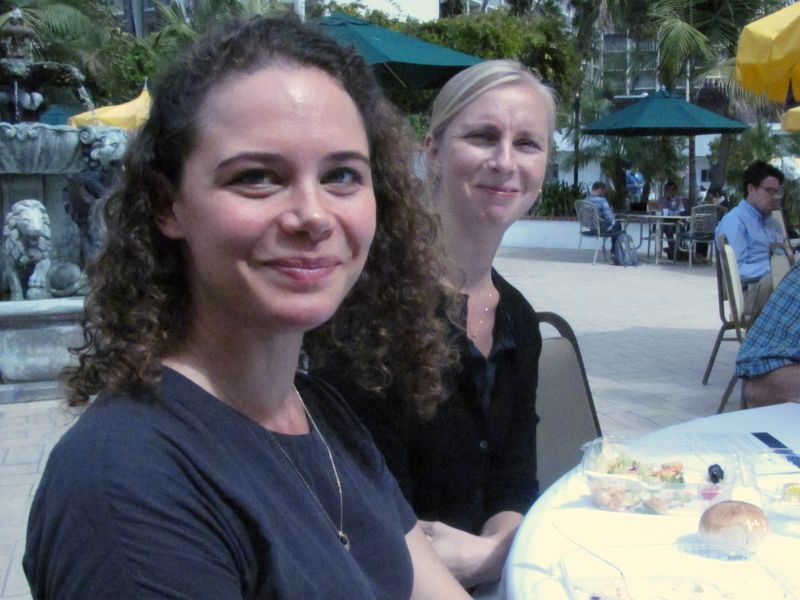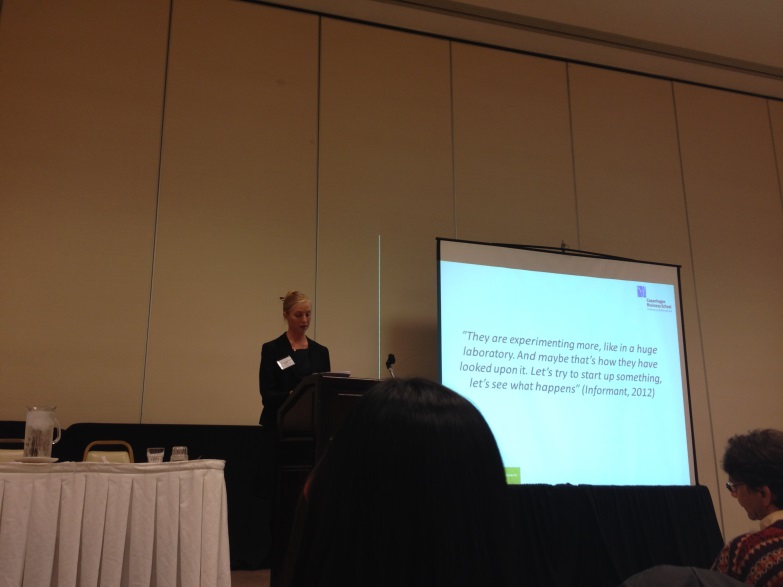PhD students
Conference report: Politics of sustainable energy transition in China
By Julia Kirch Kirkegaard, DBP and Louise Lyngfeldt Gorm Hansen, INT. Both also at The Sino-Danish Center for Education and Research
 As two PhD students with backgrounds in China-studies and several over-lapping interests and concerns in our PhD projects we early on found that there was potential for interesting collaborations. During the past year, we both conducted field-work in China in different and sometimes overlapping periods. We are both focusing on the issue of sustainable transition in China – with case studies on hydropower and wind power respectively – and we are both taking a constructivist approach based on principles of Science-and Technology-Studies (STS) and one of its main perspectives, Actor-Network-Theory. As we find some interesting connections between our areas of field research, we decided to write a common abstract for the 4S Conference held this year in October in San Diego.
As two PhD students with backgrounds in China-studies and several over-lapping interests and concerns in our PhD projects we early on found that there was potential for interesting collaborations. During the past year, we both conducted field-work in China in different and sometimes overlapping periods. We are both focusing on the issue of sustainable transition in China – with case studies on hydropower and wind power respectively – and we are both taking a constructivist approach based on principles of Science-and Technology-Studies (STS) and one of its main perspectives, Actor-Network-Theory. As we find some interesting connections between our areas of field research, we decided to write a common abstract for the 4S Conference held this year in October in San Diego.
The name of the conference is an acronym for ‘The Society for Social Studies of Science’. The Society for Social Studies of Science (4S) is the oldest and largest scholarly association devoted to understanding science and technology, and its aim is to facilitate communication across conventional boundaries that separate disciplines.The STS-field is crossing a variety of different areas, e.g. scholars in sociology, anthropology, history, philosophy, political science, economics, studies of knowledge, policy, R&D, and the development and use of specific technologies.
 Last year, the 4S Conference was held with great success at Copenhagen Business School in collaboration with EASST (The European Association for the Study of Science and Technology). This year, the conference was held in San Diego on October 9-12. This year’s conference participation was higher than ever, totaling around 1200 attendants, and the conference program showed the variability existing in the vibrant community of STS-scholars. The theme of the 3-part panel we were a part was: ‘The politics of sustainable energy transition’, and was headed by Professor David Hess from the Department of Sociology and Director of the Institute for Energy and Environment at Vanderbilt University. The panel was aimed at feeding into the emerging literature on the political dimensions of sustainability policies and technological transitions. In particular on a discussion on the merits of fast-paced transitions versus slow-paced sustainability transitions.
Last year, the 4S Conference was held with great success at Copenhagen Business School in collaboration with EASST (The European Association for the Study of Science and Technology). This year, the conference was held in San Diego on October 9-12. This year’s conference participation was higher than ever, totaling around 1200 attendants, and the conference program showed the variability existing in the vibrant community of STS-scholars. The theme of the 3-part panel we were a part was: ‘The politics of sustainable energy transition’, and was headed by Professor David Hess from the Department of Sociology and Director of the Institute for Energy and Environment at Vanderbilt University. The panel was aimed at feeding into the emerging literature on the political dimensions of sustainability policies and technological transitions. In particular on a discussion on the merits of fast-paced transitions versus slow-paced sustainability transitions.
Thanks to the Sustainability platform who has kindly sponsored our conference participation we had the opportunity to participate in a good conference and engage in fruitful and interesting discussions about ours and others’ research as well as get to know more scholars in the STS community.